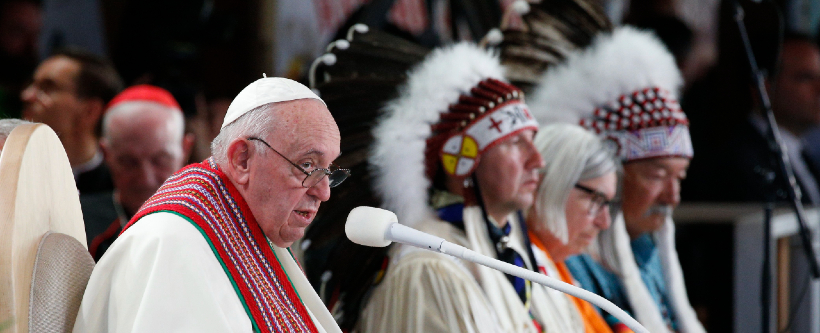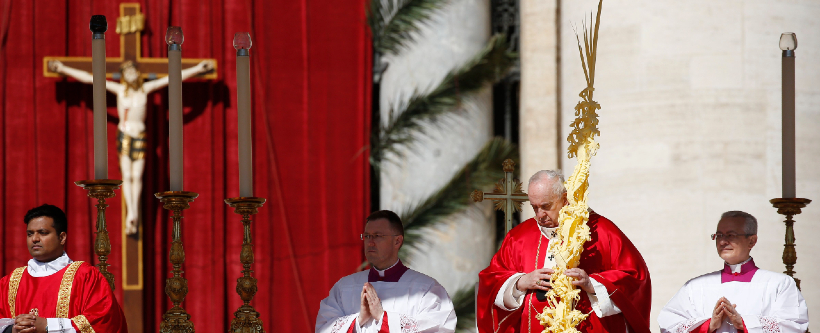When speaking of God, the descriptive language that we adopt is love. And when speaking of love, the fundamental dimension that we attribute is divine. This is why the Apostle of Love defines God as love. (1 John 4.8)
When our dear brother and Bishop of Rome, His Holiness Francis, issued his apostolic exhortation Amoris Laetitia earlier this year, it was around the time that we jointly travelled to the island of Lesbos in Greece, in order to express our solidarity with persecuted refugees from the Middle East. Although the Papal Encyclical “on the joy of love” is concerned with issues pertaining to family life and love, we believe that it is not unrelated to that historical visit to the refugee camps. For what became immediately clear to both of us, as we gazed into the sorrowful faces of the wounded victims of war, was that all of these people were individual members of families — of families broken and torn apart by hostility and violence. But, as our Lord explicitly told us about the relationship between power and service, it should not be so among us! (Matt. 20.26) Immigration is nothing but the other side of the same coin of integration, which is surely the responsibility of every sincere believer.
Of course, Amoris Laetitia touches the very heart of love and family, just as it touches the heart of every living person born into this world. This is because the most sensitive issues of family life reflect the most vital questions of belonging and communion. Whether they concern the challenges of marriage and divorce, or even of sexuality and childrearing, they are all delicate and precious pieces of the sacred mystery that we call life.
Over the last months, there have been many commentaries and evaluations on this significant document. People have wondered how specific doctrine has been developed or defended, whether pastoral questions have been reformed or resolved, and if particular rules have been either reinforced or mitigated. However, in light of the imminent feast of the Lord’s Incarnation — a time when we commemorate and celebrate that the “divine word assumed human flesh and dwelt among us” (John 1.14) — it is important to observe that Amoris Laetitia recalls first and foremost the mercy and compassion of God, rather than solely the moral rules and canonical regulations of men.
What has undoubtedly smothered and hampered people in the past is the fear that a “heavenly father” somehow dictates human conduct and prescribes human custom. The truth is quite the opposite, and religious leaders are called themselves to remember and in turn to remind that God is life and love and light. Indeed, these are the terms repeatedly emphasized by Pope Francis in his encyclical, which discerns the experience and challenges of contemporary society in order to discern a spirituality of marriage and family for today’s world.
The church fathers are not afraid to speak openly and honestly about the Christian life. Nonetheless, their starting point is always the loving and saving grace of God, which shines on all people without discrimination or disdain. The same fire of God, says Abba Isaac the Syrian in the seventh century, brings warmth and consolation to those who are accustomed to its energy, while searing and consuming those who have turned away from its fervor in their lives. The same light of God, says St. Symeon the New Theologian in the tenth century, serves as salvation for those who have desired it and enables them to see the divine glory, while bringing condemnation to those who have rejected it and preferred their own blindness.
In the early months of this Jubilee Year of Mercy, it was most fitting that Pope Francis both encountered the families of the despondent refugees in Greece and embraced the families under his pastoral care throughout the world. In so doing, not only did he invoke the infinite charity and unconditional compassion of the living God upon the most vulnerable souls, but he also evoked a personal response from the recipients-readers of his words as well as all people of good will. For he invited people to assume personal responsibility for their salvation by searching for ways in which they can follow the divine commandments and mature in spiritual love.
The culmination of the papal exhortation is, therefore, also our own conclusion and meditation: “What we have been promised is greater than we can imagine. May we never lose heart because of our limitations, or ever stop seeking that fullness of love and communion which God holds out before us.”
by Ecumenical Patriarch Bartholomew







Facebook Comments